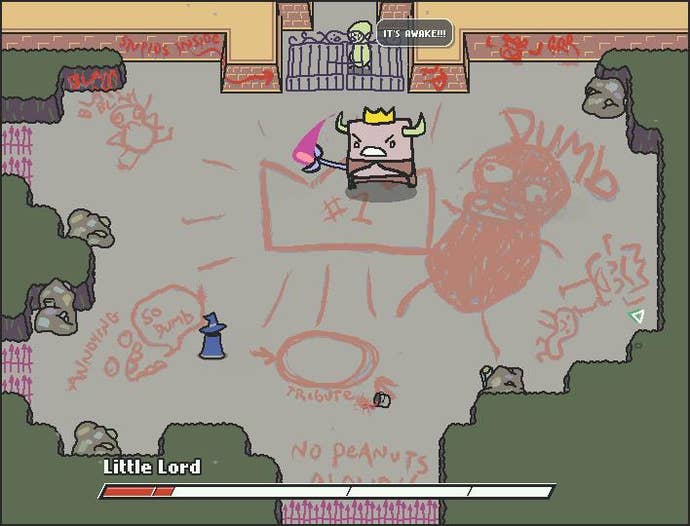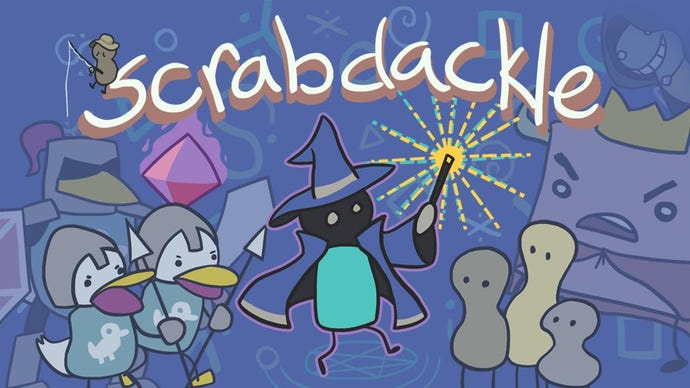Indie dev turns down $500,000 publishing deal, shines a light on exploitative contract practices
An indie developer has turned down a massive $500,000 deal and publicly outlined their reason for doing so, hoping to shine a light on exploitative practices in the games industry.
Solo indie developer Jakefriend, the creative force behind wizard adventure game Scrabdackle, has tweeted an insightful thread about the "exploitative" nature of publisher contracts that are aimed at indie developers, and noted how some of the clauses contain practically "insane" breach-of-contract penalties.
Jakefriend noted that they were offered the ludicrous sum outright – and that could have helped release the game in multiple languages, with full QA testing, on both PC and Nintendo Switch at the same time.
But, having raised CAD$44,552 from crowdfunding, the developer turned the deal down. In a lengthy Twitter thread, the indie developer explained their reasoning behind turning down the massive investment.
“I turned down a pretty big publishing contract today for about half a million in total investment,” Jake began. “They genuinely wanted to work with me, but couldn’t see what was exploitative about the terms. I’m not under an NDA, wanna talk about it?”
The next 23 tweets tell an interesting story that you don’t often get to hear, thanks to NDAs and embargoes placed on these kinds of deals. The most interesting of the bytes of information included in this thread reveal that the contract allowed the publisher to keep the rights to the game's IP if a breach of contract was discovered.
Luckily for the publisher, the description about what constitutes a breach of contract seemed quite ambiguous. Jakefriend never named the publisher in question.
If Jakefriend was found to be in breach of the contract, the unnamed publisher would also be given all rights to sell the game, resulting in Jakefriend losing his share of royalties. Given that even the likes of Outriders isn’t making royalties back yet, that’s a pretty big deal for a game expecting a long tail when it comes to sales.
"So, here's me, a 30-year-old solo dev, facing a consequence where if my game is be taken away from me I'm also *in debt*," Jakefriend continued. "The debt would be anywhere from 1/4 to 1/2 a million dollars, and with no option for further income. Likely any funds I'd already received would be spent on cost of living, and I... don't *have* money like that, you know? So if this happens I'm in debt, *forever*."

So is it as bad as Jakefriend makes out? Well, some other industry names have weighed in on this. As per lawyer and legal commentator Richard Hoeg, this all seems like standard practice… though there’s a little bit of hyperbole in there. "I tend to agree that repayment and loss of rights is going too far. Often if there’s a termination I would look for repayment or loss of rights. They get their money back on your breach but if they take your game instead, that “debt” is paid solely out of revenues,” Hoeg explained, going on to say the contract is "aggressive" but "probably not quite as bad as portrayed."
Over at Kotaku, indie publisher Devolver Digital weighed in on the situation in a statement.
“Publishing contracts have dozens of variables involved and a developer should rightfully decline points and clauses that make them feel uncomfortable or taken advantage of in what should be an equitable relationship with their partner—publisher, investor, or otherwise,” a spokesperson said.
“Rev share and recoupment in particular should be weighed on factors like investment, risk, and opportunity for both parties and ultimately land on something where everyone feels like they are receiving a fair shake on what was put forth on the project. While I have not seen the full contract and context, most of the bullet points you placed here aren’t standard practice for our team.”
Even indie superstar Jonathon Blow had something to say. "The reason these contracts exist is because so many indies are bad at business and sign them," Blow explained. "That said, the 'we are shocked you won’t sign these terms' is a lie. They know how bad the terms are, they’re just playing dumb because most indies, presented with that response, sign."
The lesson here? Lawyer up if you’re looking at selling your indie game. Always.

